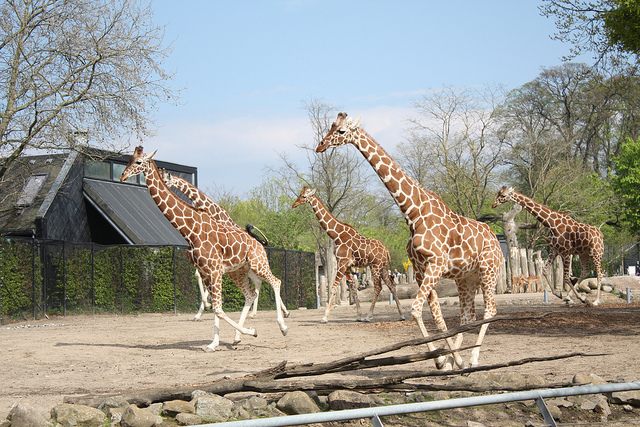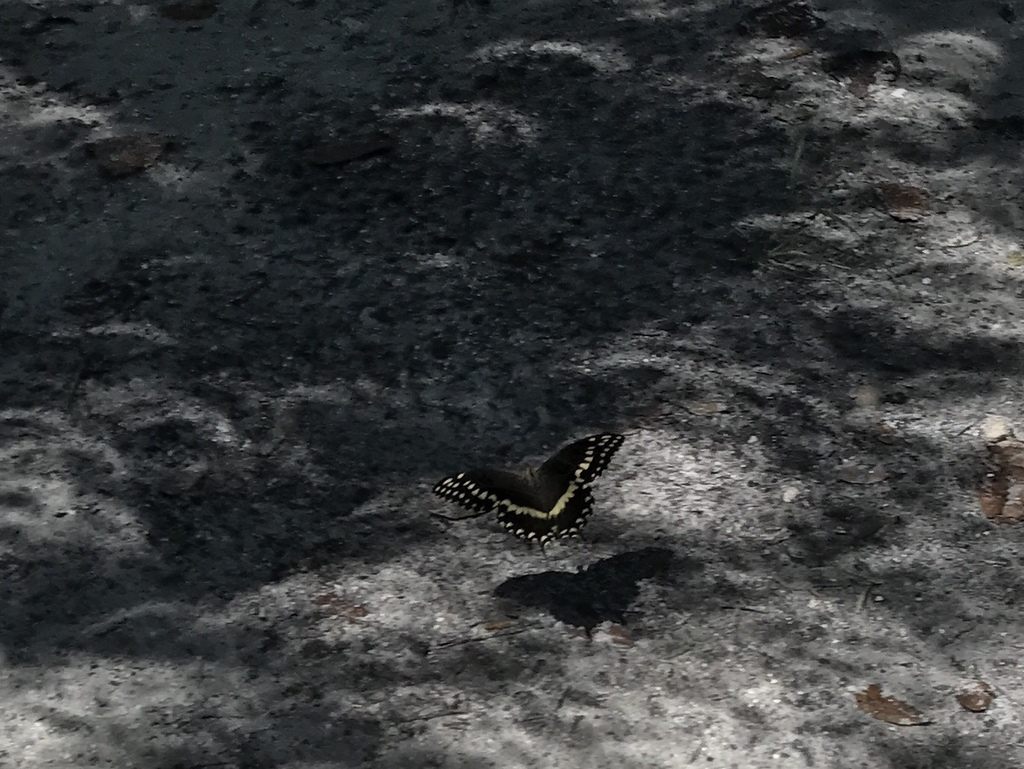The Best Animal Reactions to the Eclipse
Scared chimps, running giraffes, bat traffic jams, and more.

Two weeks ago, a few days before the August 21 solar eclipse swept across United States, we asked park rangers, zookeepers, and biologists within the path of totality how they thought animals would react to this unusual celestial event. Their predictions ranged from “they probably won’t care,” to “they’ll try to go to sleep,” all the way to “they’ll sit and worship the sun.” (Lemurs are always up for a good time.)
The eclipse came and went. People laughed, cried, danced, and sang. And once we recovered, we called our experts back and asked: what did the animals do?
They said animal behavior might be odd during the eclipse. Here’s an opossum taking a walk in the bright of day during the eclipse! pic.twitter.com/Bobp3TxBQh
— Hans Jacobsen (@hejish) August 21, 2017
A lot of things, it turns out! “The bats were really chapped,” says ranger Steve Fullmer of Fort Laramie National Historic Site in Wyoming. “A few left their roosts to start hunting for the ‘night.’ As the sun returned, the first flight tried to get back to the roost, while others were still queued up to take off. Shall we just say that ‘air traffic control’ was snarled up. The bats were chattering their anger call. Definitely a unique problem!”
Elsewhere at Fort Laramie, turkey vultures took totality as a sign to come back to their roost. When it got light again, most left, unruffled. But “some sat there and looked confounded,” another ranger, Michael Evans, said. “If a vulture can express confoundment.”

Alvis Mar, the superintendent of Agate Fossil Beds National Monument, had predicted that nocturnal animals would come out during totality. But even he was surprised at where they came from. “Some of our visitors saw bats fly from their roosts in trees in the middle of our parking lot,” he says. Even after years of monitoring and inventorying bats, he says, “I didn’t suspect that the bats [were staying] in the trees in the parking lot!”
Meanwhile, plenty of citizen scientists across the United States kept their eyes peeled as part of the California Academy of Science’s “Life Responds” project, coordinated through the iNaturalist app. “We ended up with over 2,600 observations from [over] 630 participants,” says project head Elise Ricard, more than twice as many as had previously been recorded for any one-day event.

She’s still going through the data, but so far, a few of the observations stand out, she says: “[One user took] a beautiful set of photos of an okra flower opening and closing in Columbia, Missouri,” as totality came and went. “We also had reports of small fish re-emerging from deeper areas and swarming close to the surface, honey bees being absent from flower beds, and alligators doing nothing,” she says. (If you’d like to explore the iNaturalist data yourself, you can do so here.)
Ricard herself was stationed in Oregon, where she watched a group of cows migrate to one end of a field and lay down. “We also noticed the local cat, who doesn’t usually come near people, delicately walking close to us with its hackles up,” she says.
Sometimes the best reaction is none at all. On eclipse day, the Washington Post’s Dave Jorgensen headed to Cross Plains, Tennessee, to spend totality with the town’s famous fainting goats. There’s a “Best Of” video up here, which shows what happened when the sun disappeared: Jorgensen pretended to faint over and over again, while the goats remained unruffled.
Zoos across the country also hosted successful observation events. Keepers at South Carolina’s Greenville Zoo noticed flamingos flocking to one side of their lagoon, writes the Greenville Journal. One female rhea even abandoned a nest full of eggs to rush across her enclosure.
At the Nashville Zoo in Tennessee, orangutans climbed as high as they possibly could in their enclosure, and all four giraffes, including the usually unruffled adults, ran around as totality approached. Nearby, at the Chattanooga Zoo, a chimp named Katrina showed concern as the sun disappeared, and another came over to comfort her, WRCBtv reports.
And what about those sun-worshipping Tennessee Aquarium lemurs? In the end, they didn’t really do anything, perhaps because they were just outside the path of totality. Oh well—there’s always 2024.
















Follow us on Twitter to get the latest on the world's hidden wonders.
Like us on Facebook to get the latest on the world's hidden wonders.
Follow us on Twitter Like us on Facebook